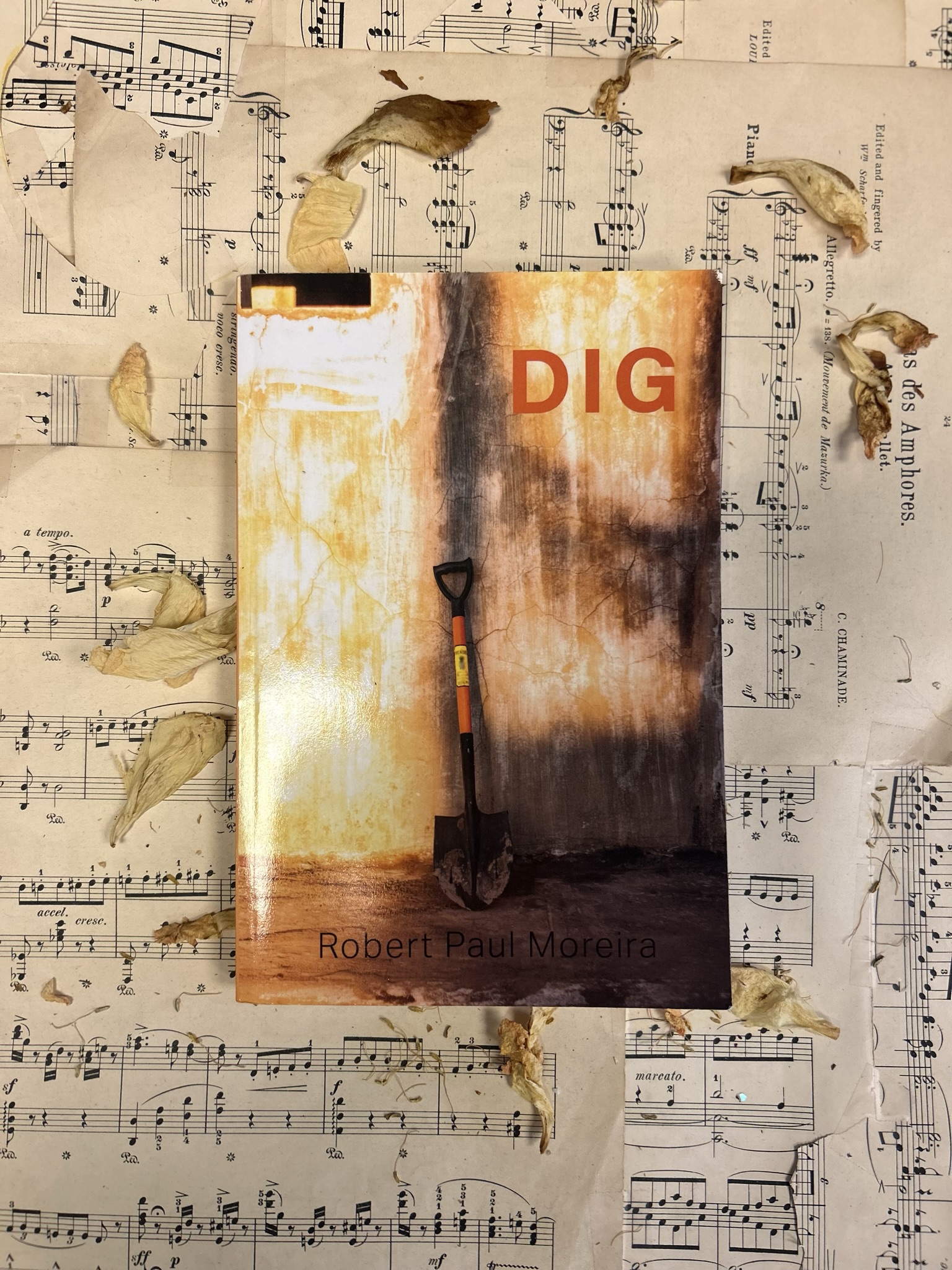
From the start, it’s exceedingly clear that Moreira has a distinct, unique voice that the reader will either deeply love or abhor in its entirety. This concise manner of storytelling mixes modern individual culture with mythological and literary references in such a way that nearly raises a middle finger to the occasional snobbery of contemporary literary fiction and sets Dig apart from the very first. That is to say, this read was like nothing I’ve read before, and diving into it felt akin to a fully submersive dip in the strangest of pools.
The writing here is blunt, fun at times, nearly tender at others, often poking fun at itself and its surroundings both. I’ve never met the author, but from this text, I can only imagine him to be a lively individual full of character and quick-witted phrases, much as his characters are. Each sentence is punctuated with backstory, individualism, and generally subtle-yet-effective character building that lends a specific vibrant touch to the work overall.
Skillful juxtaposition is what truly sells this book. The crass desperation of “WHERE THE FUCK IS IT?” followed immediately by the haunting “And I’m a god, trembling in creation” in “Centaurs”, for instance, or the descriptor, “Prometheuses on ‘roids”, in the same story. Not only are Moreira’s mainly Latinx characters caught between cultures; they are also caught between eras, decades, fractured versions of themselves that take to the pages like pieces of a strange, glassine kaleidoscope.
Moreira showcases equal skill in genre experimentation, tying together microfiction, short stories, and dramatic monologues to create a concise collection that builds on itself rather than becoming stiff or disconnected. In particular, “Proxima b” and “Kiki” feel like interludes, moments of refreshing pause, though they fall at the end of the collection. “Born in Blood”, on the other hand, partially conveys the story in small lists, while “The Lighthouse” relays long, striking, internal monologues. It would be very easy for this collection to feel as fragmented as its inhabitants, but the human condition truly ties the content together in a largely alluring way.
Altogether, I greatly enjoyed this eclectic, unique literary experience and though it will admittedly rub some readers the wrong way, those who enjoy this collection will enjoy it with great fervor in its entirety. I’d recommend this to fans of Brickmakers by Selva Almada or Dancing After Hours by Andre Dubus! You can find it directly through Frayed Edge Press or read an excerpt featured in Lone Star Literary Life, and decide for yourself where you stand on this unique and skilled, albeit controversial, cross-genre collection.
If you enjoy the work I do, consider supporting me on Ko-fi, signing up for my newsletter, or simply checking out the rest of my work on my site. As always, thanks for reading!